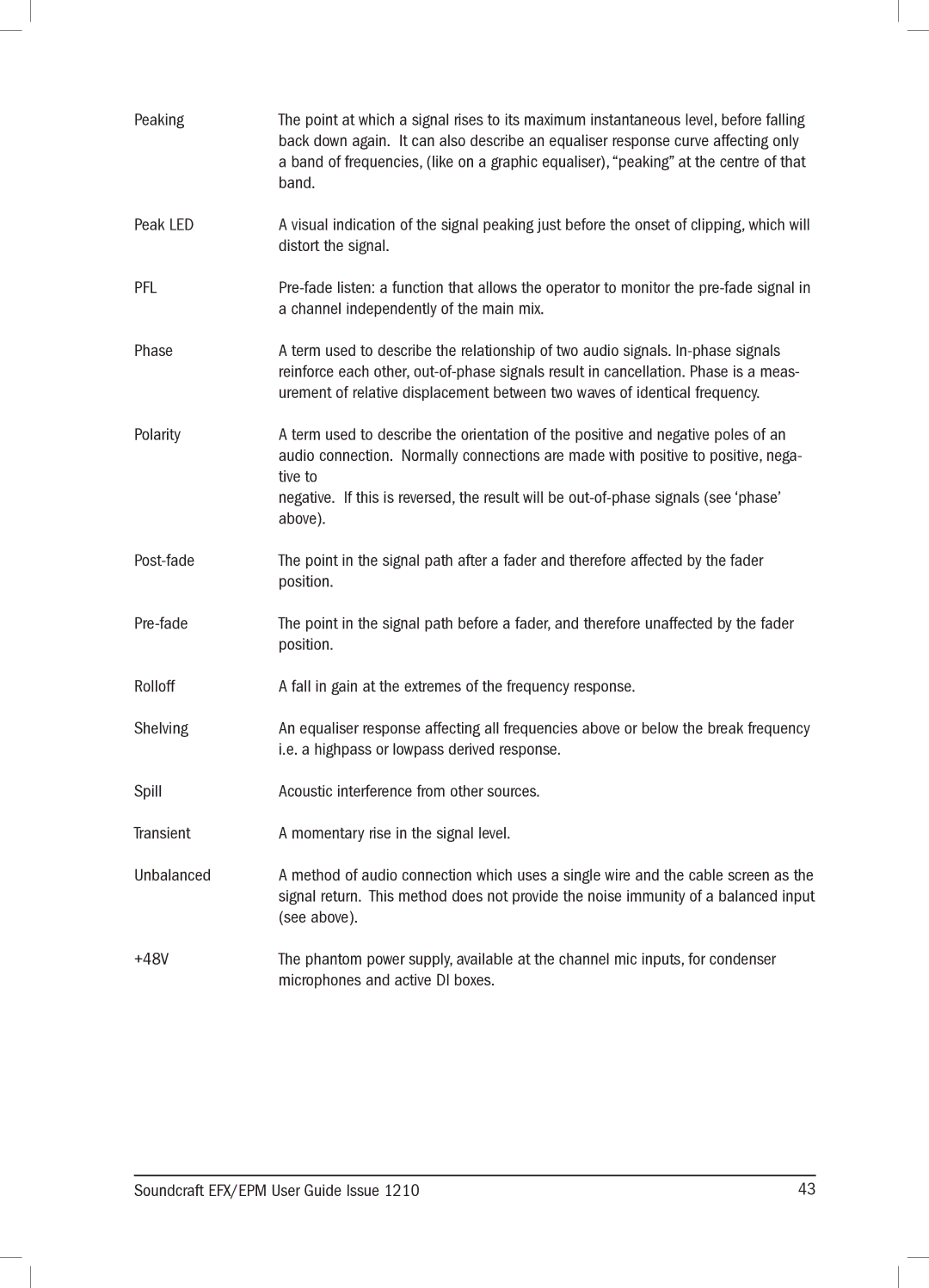
Peaking | The point at which a signal rises to its maximum instantaneous level, before falling |
| back down again. It can also describe an equaliser response curve affecting only |
| a band of frequencies, (like on a graphic equaliser), “peaking” at the centre of that |
| band. |
Peak LED | A visual indication of the signal peaking just before the onset of clipping, which will |
| distort the signal. |
PFL | |
| a channel independently of the main mix. |
Phase | A term used to describe the relationship of two audio signals. |
| reinforce each other, |
| urement of relative displacement between two waves of identical frequency. |
Polarity | A term used to describe the orientation of the positive and negative poles of an |
| audio connection. Normally connections are made with positive to positive, nega- |
| tive to |
| negative. If this is reversed, the result will be |
| above). |
The point in the signal path after a fader and therefore affected by the fader | |
| position. |
| The point in the signal path before a fader, and therefore unaffected by the fader |
| position. |
Rolloff | A fall in gain at the extremes of the frequency response. |
Shelving | An equaliser response affecting all frequencies above or below the break frequency |
| i.e. a highpass or lowpass derived response. |
Spill | Acoustic interference from other sources. |
Transient | A momentary rise in the signal level. |
Unbalanced | A method of audio connection which uses a single wire and the cable screen as the |
| signal return. This method does not provide the noise immunity of a balanced input |
| (see above). |
+48V | The phantom power supply, available at the channel mic inputs, for condenser |
| microphones and active DI boxes. |
Soundcraft EFX/EPM User Guide Issue 1210 | 43 |
